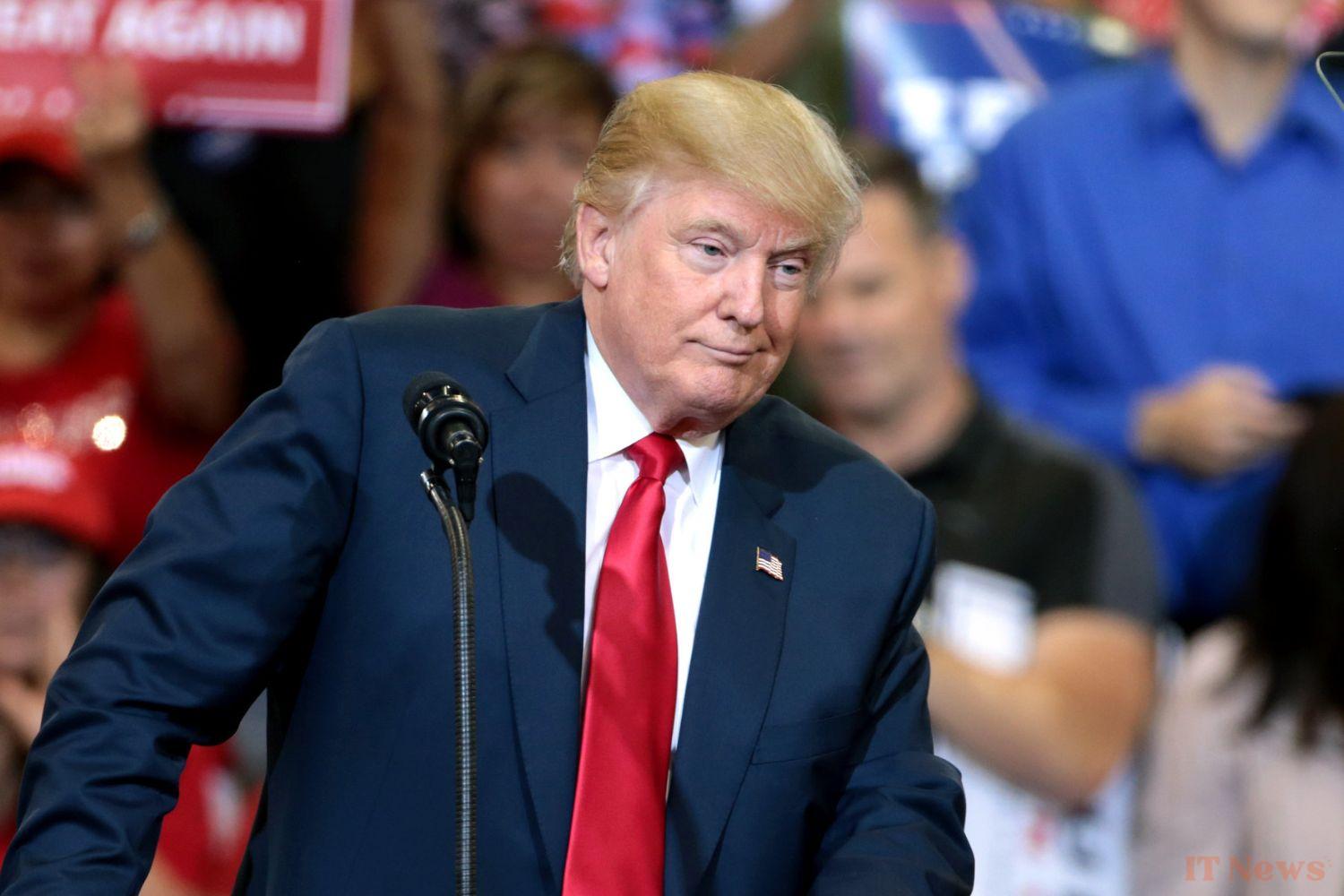The semiconductor industry—those essential components of our smartphones, AI servers, and cars—is firmly in Donald Trump's crosshairs. Not only has the US president tightened the rules on China, but his previous announcements of additional tariffs on electronic chips are beginning to take shape. Enough to worry many American companies, but also European ones.
April 1st Lastly, an official investigation was opened by the American administration, aimed at taking stock of the importation of electronic chips into the country, and their supply chain. While the chips are generally designed in the United States, as at Nvidia, the leader in the sector, they are then manufactured in Asia at Samsung, SK Hynix (South Korea) and especially at TSMC, in Taiwan, where the majority of semiconductors come from today. Or, selon a note published on April 16 in the U.S. Federal Register, and marked byContexte, Thursday, April 17, Washington wants, in this investigation, to analyze the effects on national security of imports of "semiconductors, semiconductor manufacturing equipment and their related products». The findings of this investigation would be used to set new customs duties on the chip industry, reports the Washington Post. The threat of taxes on the sector is therefore increasingly palpable. This market, which has so far escaped "reciprocal customs duties," could therefore well weather a Trump storm. In recent weeks, however, the American president had exempted chips and electronic products from his customs duties. But the billionaire then reversed this exception, warning on March 13 that sector-specific taxes would finally be announced in the coming weeks. For Donald Trump, the goal is simple: the threat of additional tariffs on imported electronic chips should encourage companies in the sector to relocate factories to the country. The idea is to "repatriate" semiconductor manufacturing to the country—a goal that many experts consider difficult to achieve, given the semiconductor manufacturing chain, which is currently fragmented, complex, and globalized. But if the tariffs are actually applied, they should be reflected in the prices of semiconductors arriving from Asia—an increase that the American industry, which imports these components on a massive scale, will have to face. At the risk of seeing the final price of many products (smartphones, computers, cars, etc.) increase in the country, and in the world. Alongside the issue of customs duties, Donald Trump has, at the same time, tightened the rules relating to chip exports to China, in line with the policy initiated by Joe Biden since October 2022. The news has hurt several American companies. On Tuesday, April 15, the US Department of Commerce announced that it was issuing new export licensing requirements, this time for chips intended for the Chinese market, namely, H20s from the American giant Nvidia, MI308s from AMD – Advanced Micro Devices, another American semiconductor manufacturer – as well as their equivalents. On Wednesday, April 16, Nvidia confirmed in a financial document that the administration had indeed banned it from exporting its H2O to China. These chips had, however, been designed to comply with previous export restrictions, imposed by Joe Biden since 2022. The operation is expected to cost it nearly $5.5 billion, the company said. At AMD, its rival, the same story. The American company declared in a report filed Wednesday that these new restrictions would cause it to lose nearly $800 million. As a result, several companies in the sector have seen their shares fall, like the first affected, Nvidia, whose 13% of its revenue comes from China, according to CFRA Research, cited by Axios. According to one of its analysts, this new restriction could, instead of suffocating China, "strengthen domestic Chinese competitors, particularly Huawei,"which now produces equivalent chips. The next few weeks should be decisive: the entire sector is waiting to see what sauce it will finally be eaten with. For ASML, the Dutch semiconductor equipment manufacturer, "the recent tariff announcements increase uncertainty (…)." Especially since the US administration has until May 15 to decide whether or not to continue the system put in place by Joe Biden in January 2025. Before leaving the White House, the former US president imposed controls and limits on the purchase of semiconductors for artificial intelligence on the entire world, again with the aim of hindering China's technological development. If implemented, only a small group of US allies will be allowed to buy as many chips as they wish. All others (including European countries) will now be subject to quotas. Some will simply no longer be able to buy semiconductors intended for AI. China has responded to the already announced customs duties by limiting exports of rare earths, used in all tech products (motors, servers, smartphones, etc.).An investigation to set new customs duties?
Nvidia's H20s can no longer be purchased by China
Joe Biden's licensing system continued or stopped?



0 Comments